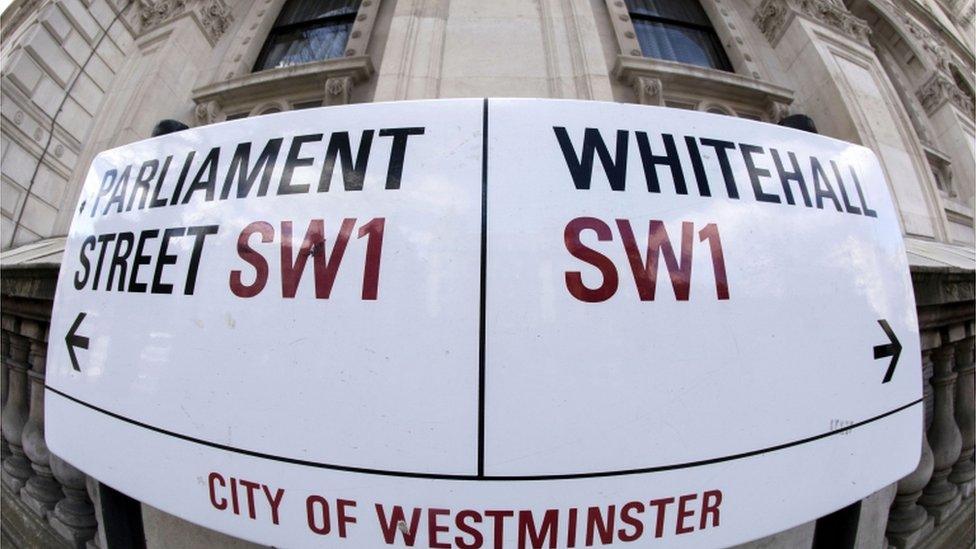Article 50: Brexit deal must meet six tests, says Labour
- Published
- comments
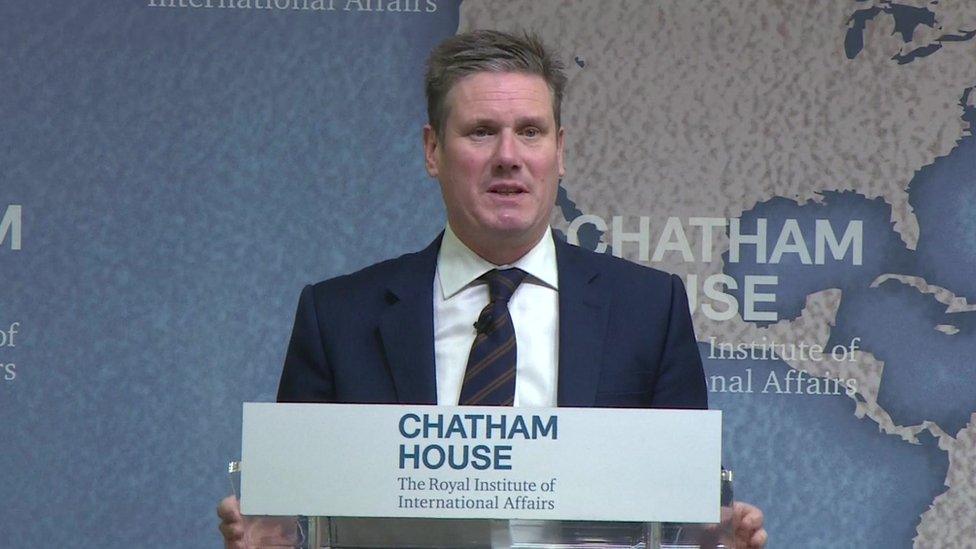
Sir Keir said the final agreement must reflect the "best of British values"
Labour will not support any Brexit deal negotiated by the government unless it meets the party's "six tests", the shadow Brexit secretary has said.
Any deal must include a strong relationship with the EU and the same benefits the UK currently has from the single market, Sir Keir Starmer said.
The UK should "honour our obligations" regarding any "divorce bill", he added.
The government will trigger Article 50 on Wednesday, kick-starting talks aimed at agreeing a Brexit deal with the EU.
The government will then publish its Great Repeal Bill on Thursday. It will propose giving ministers the powers to change some aspects of European laws when they have been incorporated into UK legislation, without needing the approval of Parliament.
Triggering Article 50 begins a two-year negotiation process to attempt to reach a deal before Britain officially leaves the EU in March 2019.
If no deal is agreed, it would mean World Trade Organization rules would be imposed - less favourable terms than trading within the single market.
Outlining Labour's demands in a speech in London, Sir Keir said the prime minister "should be under no illusion" and added that Labour would not support a deal "that fails to reflect core British values and the six tests I have set out today".
"All of us want the best for Britain. But the stakes are high and the prime minister's approach so far does not bode well," he said.
The BBC's assistant political editor Norman Smith said some of the tests were akin to "motherhood and apple pie" and could be met quite easily.
But he said Labour were setting the bar quite high in calling for the UK to retain the "exact same benefits" as currently afforded by membership of the single market and the customs union.

Labour's six tests for a Brexit deal

Fair migration system for UK business and communities
Retaining strong, collaborative relationship with EU
Protecting national security and tackling cross-border crime
Delivering for all nations and regions of the UK
Protecting workers' rights and employment protections
Ensuring same benefits currently enjoyed within single market

In demanding this, Sir Keir said Labour was only seeking the same objective that Brexit Secretary David Davis had set himself in Parliament.
"The government can't turn around and say this is unachievable because it was David Davis... who said that," he said.
Another key demand is for "fair management of migration in the interests of the economy and communities".
Sir Keir said he accepted that the EU principle of freedom of movement "has to go" but he insisted a future immigration policy must be one of managed migration which works for businesses and communities.
One of the tests calls for "a strong collaborative future relationship with the EU". He said it was important to state that because "some of the pure Brexiteers actually want us to crash out [without a deal], either at the Article 50 stage in two years or before that".
"This is the worst of all possible outcomes," he added, saying there would be greater certainty if Theresa May agreed to transitional arrangements from 29 March 2019 until a treaty setting out future relations was finally signed.
'Sniping'
Responding to Sir Keir's intervention, Conservative MP Maria Caulfield said Labour were divided over the UK's future outside of the EU and merely "sniping from the sidelines".
"They can't even agree on whether they want to control immigration, and have today failed to make ending uncontrolled free movement one of their tests for supporting a deal with the EU," she said.
No 10 said it wanted the "greatest possible access" to the single market.
European Commission President Jean-Claude Juncker suggested last week that the UK may have to pay up to £50bn for privileged access to the single market and customs union.
Asked about this on Sunday, Home Secretary Amber Rudd said business wanted the "widest possible access" to the single market but how much this would cost would form part of the negotiations.
She also dismissed a "no deal" scenario outlined by EU Brexit negotiator Michel Barnier - with truck queues at Dover, disruption to air traffic and a suspension in the movement of nuclear materials to the UK - as "apocalyptic".
"I think it's fair to say I don't recognise that description... he would say that wouldn't he?" she said.
It has been reported the Great Repeal Bill will include proposals for the government to be given a "new time-limited correcting power" which would allow changes to be made through so-called Henry VIII clauses - without needing the approval of Parliament.
The government says it needs the power to make "technical" changes quickly as a lot of EU law will not work properly without changes being made but Labour leader Jeremy Corbyn says he will not allow Parliament to be "overridden" and ministers to issue a "series of diktats".


- Published14 October 2017
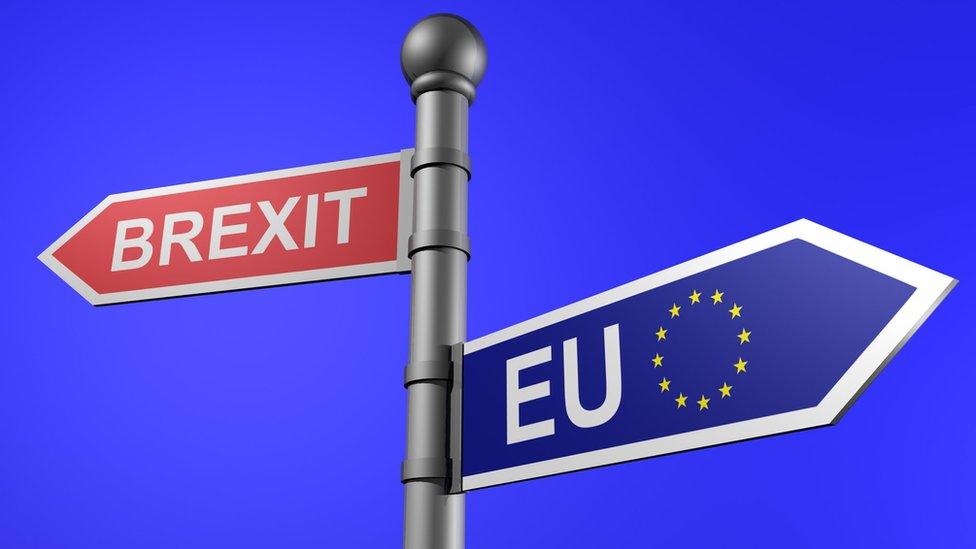
- Published30 December 2020

- Published29 March 2017
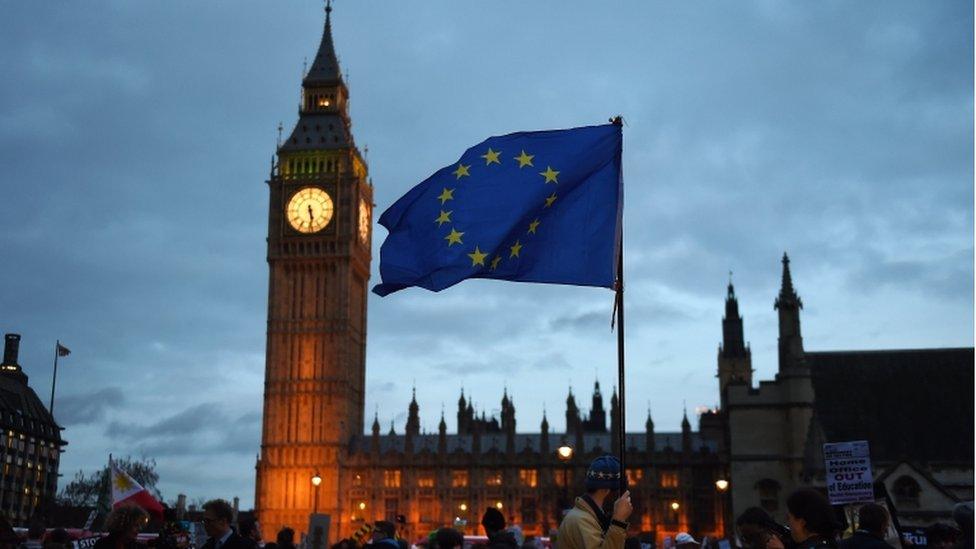
- Published25 March 2017
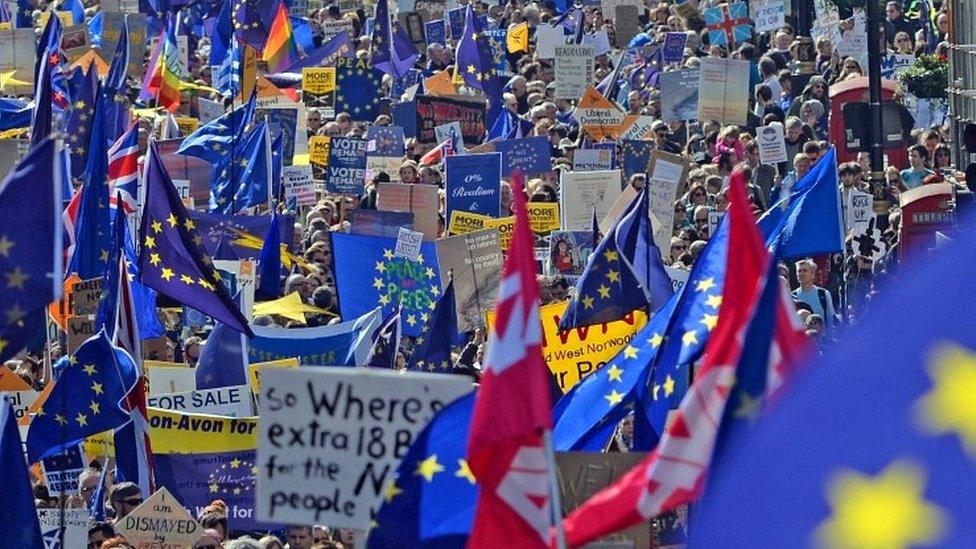
- Published24 March 2017
- Published24 March 2017
